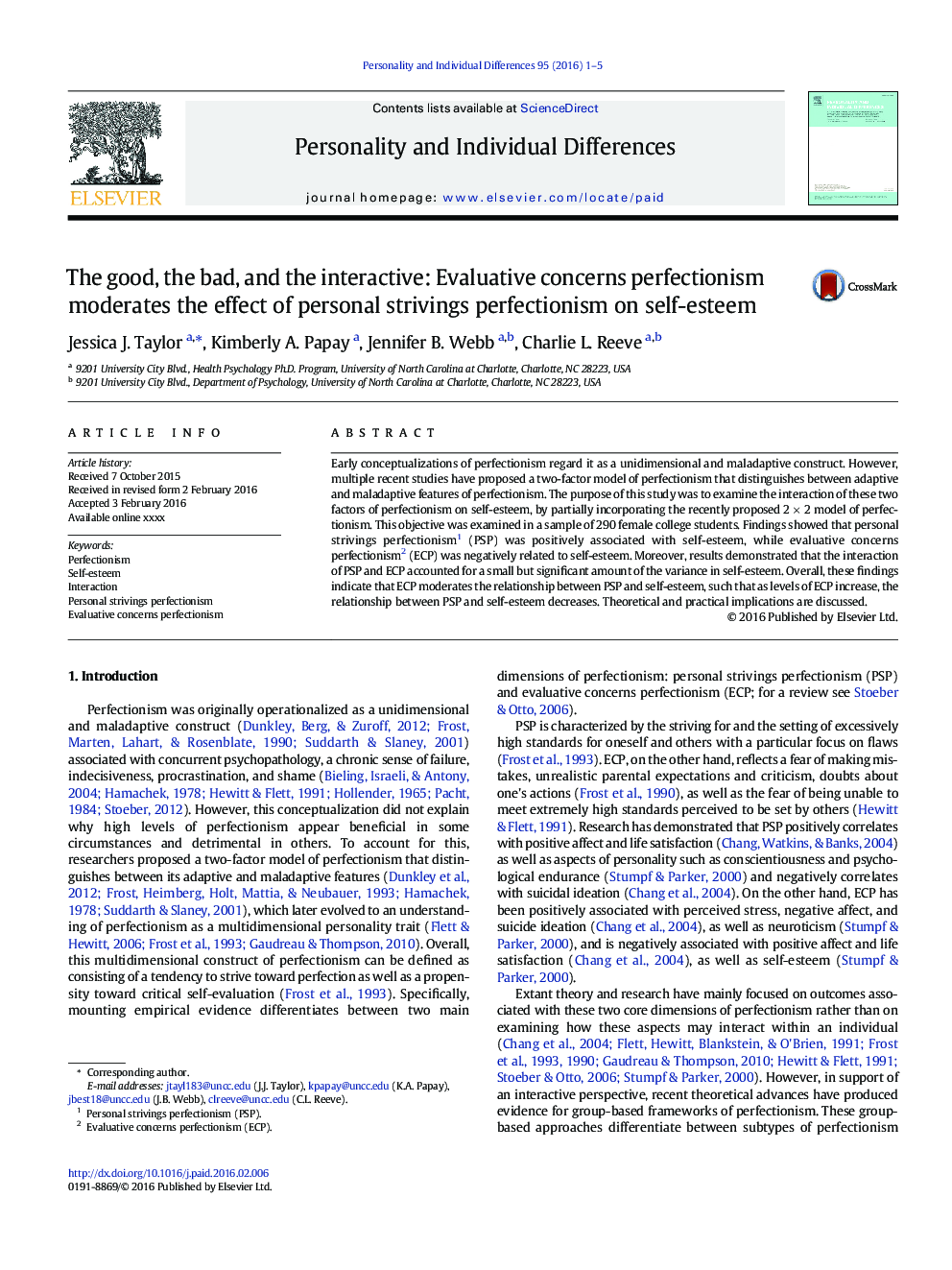| Article ID | Journal | Published Year | Pages | File Type |
|---|---|---|---|---|
| 7250178 | Personality and Individual Differences | 2016 | 5 Pages |
Abstract
Early conceptualizations of perfectionism regard it as a unidimensional and maladaptive construct. However, multiple recent studies have proposed a two-factor model of perfectionism that distinguishes between adaptive and maladaptive features of perfectionism. The purpose of this study was to examine the interaction of these two factors of perfectionism on self-esteem, by partially incorporating the recently proposed 2Â ÃÂ 2 model of perfectionism. This objective was examined in a sample of 290 female college students. Findings showed that personal strivings perfectionism1 (PSP) was positively associated with self-esteem, while evaluative concerns perfectionism2 (ECP) was negatively related to self-esteem. Moreover, results demonstrated that the interaction of PSP and ECP accounted for a small but significant amount of the variance in self-esteem. Overall, these findings indicate that ECP moderates the relationship between PSP and self-esteem, such that as levels of ECP increase, the relationship between PSP and self-esteem decreases. Theoretical and practical implications are discussed.
Keywords
Related Topics
Life Sciences
Neuroscience
Behavioral Neuroscience
Authors
Jessica J. Taylor, Kimberly A. Papay, Jennifer B. Webb, Charlie L. Reeve,
